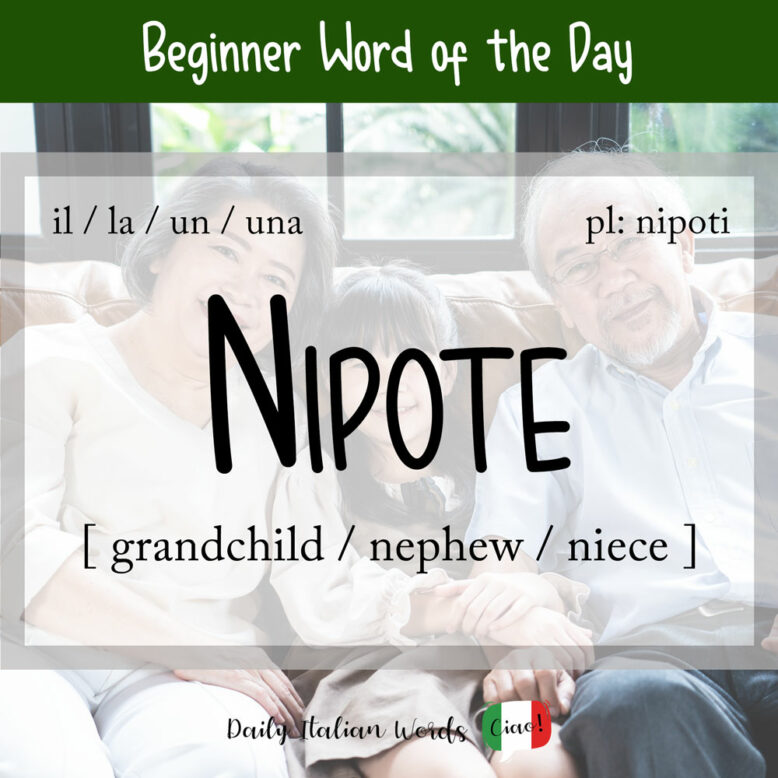Whereas in English, we have separate words for grandson, granddaughter, grandchild, nephew and niece, in Italian, there is just one word that covers them all: nipote (plural: nipoti).

In order to figure out which relative is being referred to, it helps to pay attention to the gender of the article or possessive adjective that precedes nipote.
For example, when talking about a grandson or nephew, nipote is preceded by the definite masculine article il (the), the indefinite masculine article un (a) or possessive masculine adjectives such as mio (my) or nostro (our).
Mio nipote suona il sassofono nella banda.
1) My grandson plays the saxophone in the band.
2) My nephew plays the saxophone in the band.
For a granddaughter or niece, the definite feminine article la (the), indefinite feminine article una (a) or possessive feminine adjectives are used instead (mia, nostra).
La nipote di Giulia è molto in gamba.
1) Giulia’s granddaughter is very smart.
2) Giulia’s niece is very smart.
In the same way, the plural nipoti can be translated as grandsons, granddaughters, grandchildren, nephews, nieces, or the combined nieces and nephews.
Le tue nipoti sono più attive dei miei nipoti.
1) Your granddaughters are more active than my grandchildren.
2) Your nieces are more active than my nephews.
3) Your nieces are more active than my nieces and nephews.
The diminutive forms of nipote – nipotino for a boy and nipotina for a girl – help to clarify the gender of the family member thanks to their gendered endings.
La nonna sta facendo addormentare il suo nipotino.
The grandmother is putting her little grandson to sleep.
Two words that derive from nipote are pronipote and bisnipote, both of which can translates as great-grandchild, great-grandson, great-granddaughter, great-nephew or great-niece.

If you’re feeling a little confused, you aren’t alone. Just remember that kinship terminology tends to be extremely variable across languages. For instance, neither English nor Italian distinguishes between an older brother and a younger brother, whereas Japanese makes a specific distinction with the terms ani (older brother) and otouto (younger brother).
Context and common sense also go a long way in helping you figure out the relationship between two people. For example, you can safely assume that a 21 year old talking about her nipote wouldn’t already have a grandchild! 😉
Heather Broster is a graduate with honours in linguistics from the University of Western Ontario. She is an aspiring polyglot, proficient in English and Italian, as well as Japanese, Welsh, and French to varying degrees of fluency. Originally from Toronto, Heather has resided in various countries, notably Italy for a period of six years. Her primary focus lies in the fields of language acquisition, education, and bilingual instruction.


